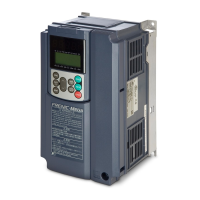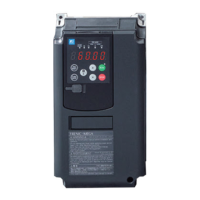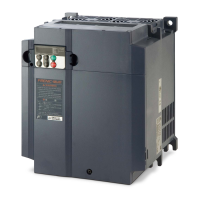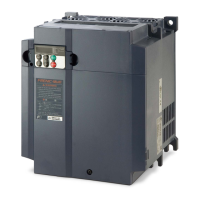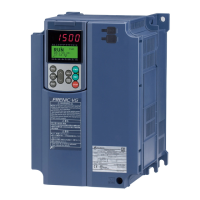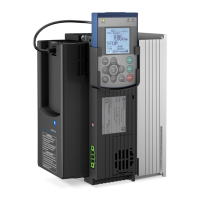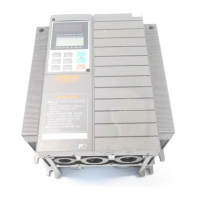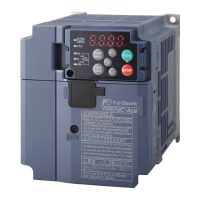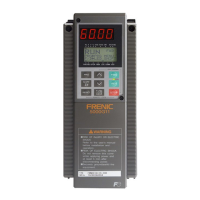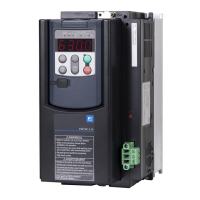App. C Effect on Insulation of General-purpose Motors Driven with 400 V Class Inverters
A-18
Figure C-2 Measured Example of Wiring Length and Peak Value of Motor Terminal Voltage
C.2 Effect of surge voltages
The surge voltages originating in LC resonance of wiring may be applied to the motor terminals and
depending on their magnitude sometimes cause damage to the motor insulation.
When the motor is driven with a 200 V class inverter, the dielectric strength of the insulation is no problem
since the peak value at the motor terminal voltage increases twice due to the surge voltages (the DC
voltage is only about 300 V).
But in case of a 400 V class inverter, the DC voltage is approximately 600 V and depending on the wiring
length, the surge voltages may greatly increase and sometimes result in damage to the insulation.
C.3 Countermeasures against surge voltages
When driving a motor with a 400 V class inverter, the following are countermeasures against damage to the
motor insulation by the surge voltages.
[1] Using a surge suppressor unit, SSU (Patent pending)
The surge suppressor unit (SSU) is a newly structured unit using circuits based on the impedance-matching
theory of a transmission line. Just connecting the SSU to the surge suppressor cable of the existing
equipment can greatly reduce the surge voltage that results in a motor dielectric breakdown.
Figure C-3 For 50 m of wiring length:
SSU 50TA-NS
Figure C-4 For 100 m of wiring length:
SSU 100TA-NS
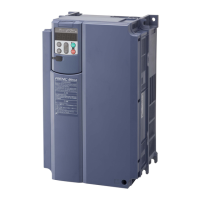
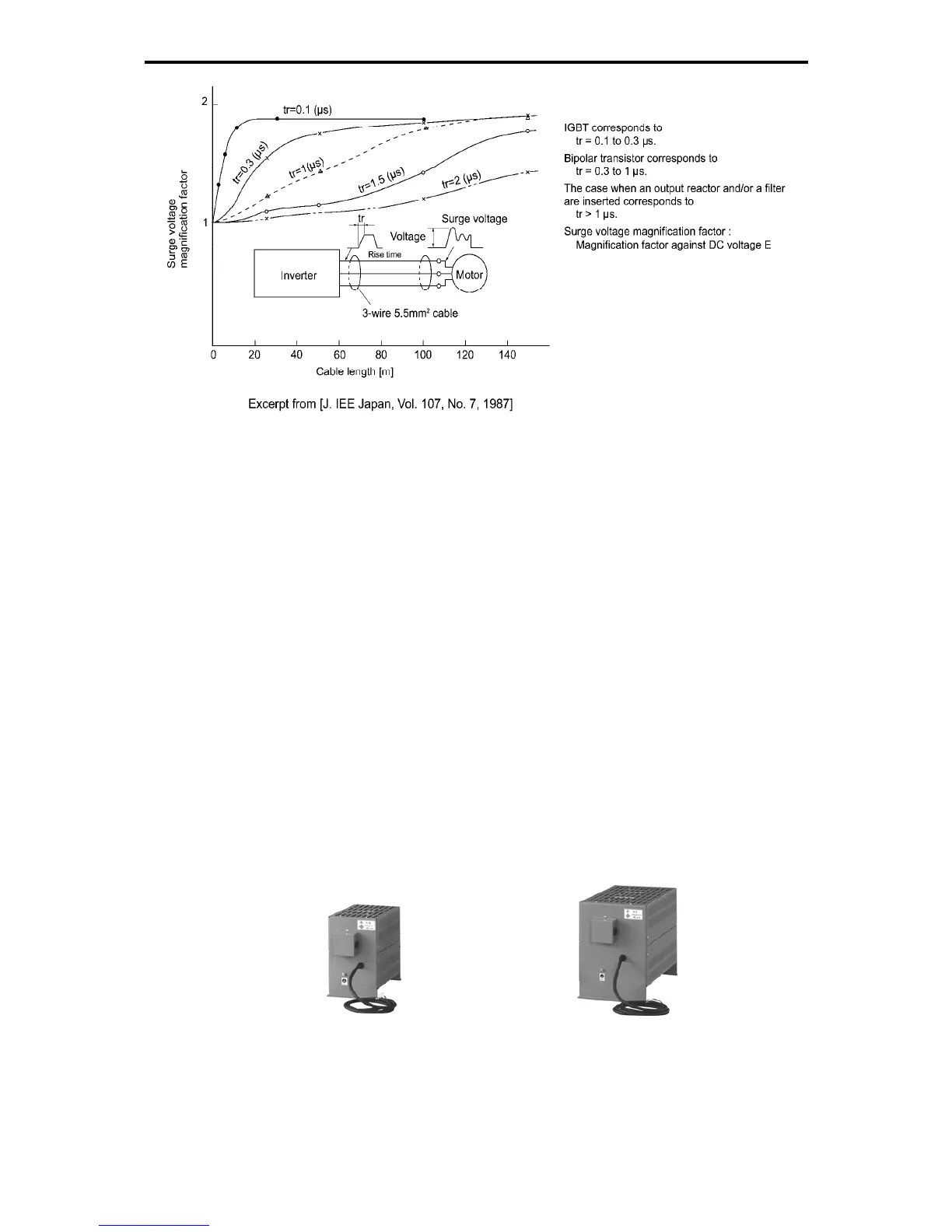